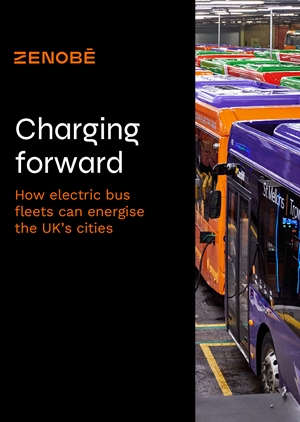Report calls for policy change to address barriers to bus electrification
Wed 04 December 2024
View all news

A report from Zemo member Zenobe calls for policy changes to accelerate the introduction of zero emission buses. It presents research into the total cost of ownership of competing technologies and shows that electric buses can have lower lifetime costs than diesel alternatives as well as bringing important economic and environmental benefits to communities across Britain.
The report offers a policy framework which aims to speed up bus electrification in the UK's towns and cities. It points out that significant hurdles need to be overcome to spread the benefits of bus electrification across the UK; in particular the long-term decline in passenger footfall on buses, and what it describes as "a growing divorce between energy and transport policy".
Zenobe's report calls for electricity policy to be made with electric transport in mind to ensure that it does not penalise buses for their energy usage. It also shows how redesigning public subsidies will allow electric buses to be deployed more effectively and equitably. Finally, it explores how to transform passenger experience to get people back on buses again.
The report argues that the challenge of accelerating bus electrification at scale is not the price of electric vehicles, but rather overcoming barriers that undermine the potential cost savings. The transition, it says, is hindered by unfair network charges that discourage electrification, inconsistent grants (such as the Zero Emission Bus Regional Areas scheme and the former Ultra Low Emission Bus grant for hybrid and zero emission models) along with declining passenger numbers. To accelerate the transition to electric buses, the report says that there is a need to create greater certainty for operators and local authorities regarding energy costs, the design of Government subsidies, and revenue streams.
Drawing on the perspectives of industry experts and policymakers, the report also says that there is potential for a quicker transition away from diesel buses, well ahead of the Government’s proposed end-of-sales date in 2032. An accelerated transition to electric buses, it says, would renew our public transport networks, reduce air pollution in our communities, and reduce costs for operators, local authorities, and the Government.
Related Links
< Back to news list